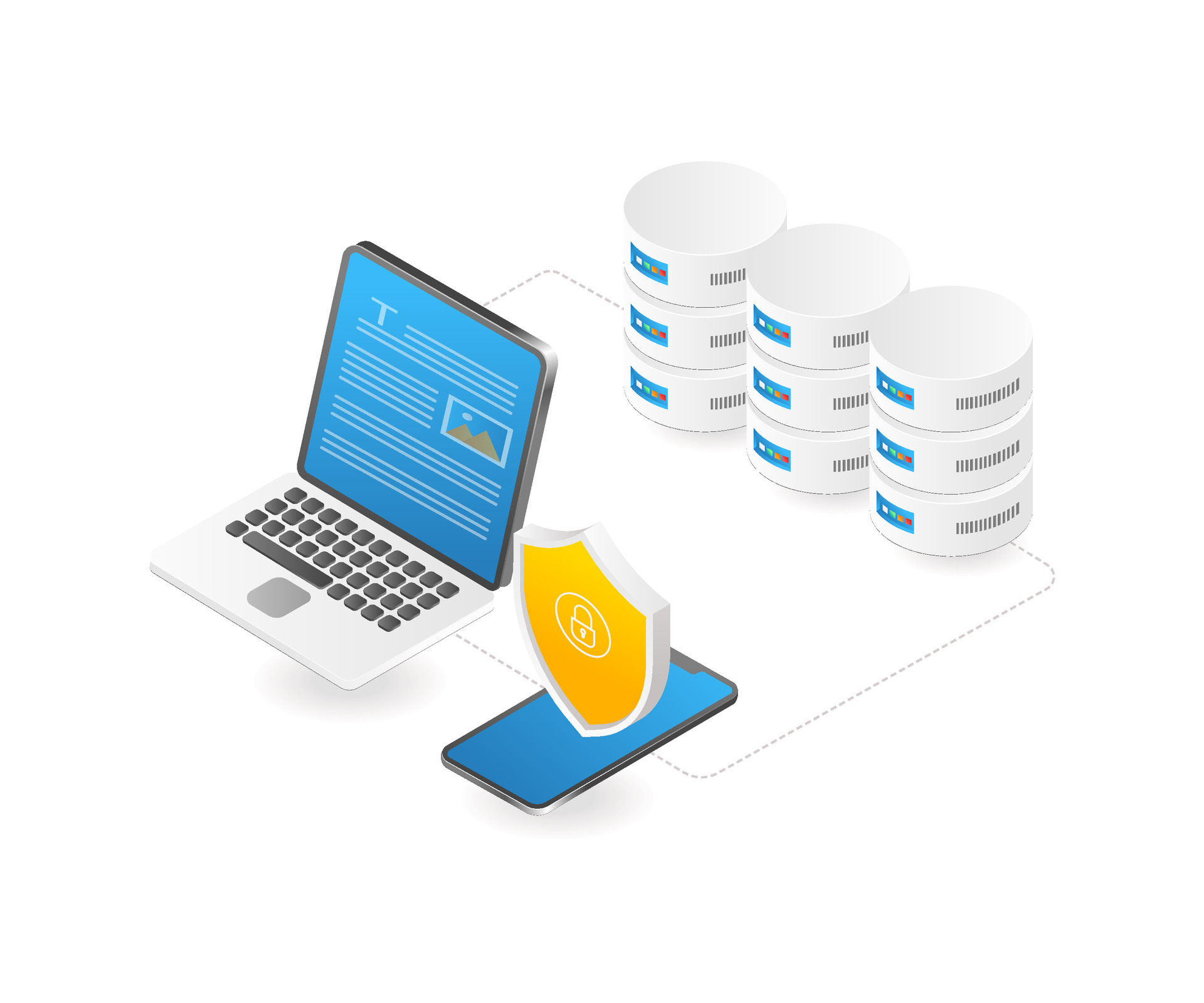Web Application Hosting Server: Comprehensive Guide

What is Web Application Hosting?
Web app hosting refers to the practice of storing and making accessible web applications through servers connected to the internet. It involves the deployment of a web application's components, such as its code, databases, and resources, onto servers configured to handle incoming requests from users accessing the application via their web browsers.
Websites are stored on servers, and when users want to access a particular website, they enter its domain or web address into their browser. Their device connects to the server hosting the website, allowing them to view its web pages through their browser. Most hosting providers typically require users to have a domain before hosting their website. If a user doesn't already have a domain, the hosting company can assist in obtaining one.
Process of Web Application Hosting
Hosted web applications operate through a combination of server-side and client-side processes, allowing users to access and interact with the application via a web browser. Here's a general overview of how a hosted web application works:
- Continuous Accessibility: A web application hosting server is a physical or virtual machine that runs continuously to ensure your website or web application is accessible to users 24/7. It's equipped with hardware, software, and network infrastructure necessary for hosting websites.
- Server Response: When a user types in your domain name or clicks on a link leading to your website, their browser sends a request to the web server. The server then retrieves the necessary files—HTML, CSS, JavaScript, images, videos, etc.—and sends them back to the user's browser, allowing your website to load and display on their screen.
- Data Storage and Management: Hosting servers store all your website's data, including files, databases, media, and configurations. This data is stored and organized on the server's storage drives and accessed whenever users visit your site.
- Self-hosting vs. Managed Hosting: Self-hosting involves setting up and managing your own hosting server infrastructure. This requires technical expertise, installation, configuration, security setup, ongoing maintenance, updates, and troubleshooting. In contrast, managed hosting services (offered by providers) handle these tasks, providing a user-friendly interface to manage the website without the need for extensive technical knowledge.
- Performance and Security: Web application hosting servers play a crucial role in ensuring optimal performance and security for your website. They implement security protocols, such as firewalls, encryption, regular backups, and software updates, to safeguard your data and users' interactions.
- Technical Support and Software Installation: Managed hosting services typically offer technical support and assistance. They manage software installations, server maintenance, and troubleshooting issues, providing a more hands-off approach for website owners.
Web application hosting servers serve as the backbone of online presence, ensuring websites and web applications are available, secure, and functioning optimally for users worldwide.
Types of Web Application Hosting Servers with their pros and cons
There are several types of web application hosting servers, each catering to different needs, resources, and levels of control. Here are some common types:
Shared Hosting
In shared hosting, multiple websites share resources on the same server. It's cost-effective as server expenses are divided among users. However, resource allocation is shared, which can impact performance if one site consumes more resources.
Pros
- Economical for small-scale websites.
- No technical expertise is required.
- Server pre-configured by the provider.
- No maintenance/administration is needed.
Cons
- Limited access to server configuration.
- Performance may suffer due to other websites' traffic.
Virtual private server (VPS) hosting
VPS hosting involves a single physical server partitioned into multiple virtual servers, mimicking dedicated servers. Each VPS operates independently, allowing users more control and dedicated resources compared to shared hosting.
Pros
- Dedicated server capacity.
- Performance is not affected by other sites.
- Root access for server configuration.
- High flexibility.
Cons
- Requires technical knowledge for management.
- Some users might need external assistance, increasing costs.
Dedicated server hosting
With dedicated hosting, an entire physical server is allocated to a single user or organization. This type of hosting offers full control over server resources, configurations, and security. It's ideal for high-traffic websites or applications requiring robust performance.
Pros
- Complete control over server configuration.
- High reliability and performance.
- Root access for server management.
Cons
- Costly, often suited for large enterprises.
- Requires technical expertise for management.
Cloud hosting
Cloud hosting utilizes multiple interconnected servers across various locations. It provides scalability, allowing resources to be scaled up or down based on demand. Users pay for the resources they use, making it flexible and cost-effective.
Pros
- Reduced hardware failure and downtime risk.
- Load balancing for traffic management and DDoS prevention.
- Scalability across multiple servers.
Cons
- Root access availability varies.
- Costs more than shared or VPS hosting.
Managed Hosting
Managed hosting services offer a hands-off approach for users who prefer the hosting provider to handle technical aspects like server setup, maintenance, security, and updates. It's suitable for users who lack technical expertise or prefer to focus on their website's content and functionality.
Pros
- Technical support for setup and maintenance
- User-friendly for non-technical users
- Security protocols and monitoring provided
- Scalable solutions available
- Performance optimization
Cons
- Higher cost compared to self-managed options
- Limited control over configurations
Colocation hosting
Colocation involves placing your own server hardware in a data center facility and renting space, power, and internet connectivity. Users have full control over their servers while leveraging the data center's infrastructure.
Pros
- Complete control over hardware and configurations
- Scalability options
- User-implemented security measures
- Cost-efficient for long-term large-scale operations
- Reliability via chosen data center quality
Cons
- High initial setup costs
- Requires advanced technical expertise
- Ongoing hardware maintenance responsibility
- Dependency on data center infrastructure
How to choose the best Web Application Hosting Provider
Choosing the best web application hosting provider depends on various factors that align with your specific needs, budget, and technical requirements. Here's a comprehensive guide to help you choose the right hosting provider:
- Performance and Reliability: Ensure the hosting provider guarantees a high uptime percentage (ideally 99.9%+) and offers swift server response times for faster website loading, crucial for user satisfaction and SEO rankings.
- Scalability: Ensure the hosting provider can accommodate your website's growth. Consider if they offer easy scalability options without downtime.
- Security Measures: Verify that the hosting provider includes free SSL certificates for secure data transfer. Look for additional security features like firewalls, malware scanning, DDoS protection, and regular backups to safeguard your website's integrity and user data.
- Support and Customer Service: Opt for a provider that offers 24/7 technical support through various channels like live chat, phone, or ticket systems. Knowledgeable and responsive customer service can be invaluable in swiftly resolving any issues that may arise.
- Price and Plans: Compare pricing structures, but don't compromise quality for a cheaper rate. Be cautious of introductory rates that significantly increase upon renewal.
- User-Friendly Control Panel: An intuitive control panel (such as cPanel, Plesk, or a custom dashboard) makes managing your website easier.
- Reviews and Reputation: Read reviews and testimonials from other users to gauge the hosting provider's reliability, customer support, and overall service quality.
Once you've considered these factors, it's essential to conduct thorough research, compare multiple hosting providers, and possibly reach out to their support teams with any specific questions before making a decision. Remember, the "best" hosting provider may vary based on your unique needs and preferences.
Conclusion
The process of selecting a web application hosting server is a critical decision that significantly impacts a website's performance, security, and overall success. Whether it's a small-scale project or a large enterprise-level application, finding the right hosting provider aligned with specific needs and growth aspirations is pivotal. As a prominent software and web development firm based in Vietnam, Axalize offers support for hosting your web application solutions throughout and after the software development stages, utilizing secure hosting servers.


